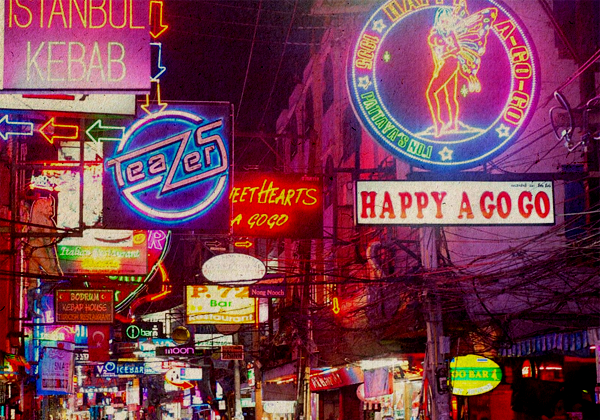It was a bustling night in Pattaya. The scent of coconut flesh and grill smoke clouded the twilight that was unfurling inside. Arriving at a glittering theatre dressed in bright, neon fuchsia, our tour attendant invited everyone inside to see the drag show.
The invitation set off an insidious response in my seven-year-old self. On the pavement outside, I protested and screamed hateful things about the drag queens. The conspiracy in my head was that they were being forced to perform against their will for the sake of Pattaya’s mafia underbelly. I thought I would go to hell just by being in their presence.
Eventually, I relented and went to see the show. Far from demonic flames and brimstone, the drag queens were nothing of the preposterous sinners I had imagined.
Fifteen years later, that same boy came out. Cries of concern and disgust followed as my parents prayed, in the literal sense, the gay away.
“If you come out to your grandma, she’ll pass away,” my dad warned.
Such remarks turned out to be nothing more than unwarranted hysteria — a few years later, my grandma asked: “I don’t see you having a girlfriend, are you gay?”
“Yes,” I calmly replied.
“I’ve known for a long time but didn’t want your dad to get stressed!” she exclaimed. Hysteria has a curious way of entangling us, confounding allies, the undecided, and myself alike.
The ensuing years were characterised by a permanent paling of anti-queer anxiety. I relished the day I could go overseas and be surrounded by queer-affirming friends, to go to a school where creatives & theatre dominated all else (think La Cage aux Folles & Marxist interpretations of Les Miserables).
I would eventually study a Theology degree at Wallace University,* inspired by my own faith and philosophical curiosities. There, I became involved in several student organisations, including an LGBTQ+ Forum. where I met Violet,** one of the convenors.
Violet is quite possibly one of the most passionate queer advocates I know, drawing from her own experiences as a trans woman. Her quiet rectitude and caring personality is capable of inspiring all in her stead.
It was also during these years that I experienced a mental downward spiral, precipitated by constant microaggressions from weekly Skype family catch-ups alongside slipping grades.
Then, it culminated. A series of heated arguments ensued a few days after my birthday. Feeling overwhelmed, I left for the city centre and stared down the granite columns of a bridge, adorned with timeworn cat statues. Memories and thoughts tangled in contradictions flashed through.
I sent a series of parting texts to my friends and flatmates, including Violet. It was them that lifted me away from the precipice to safety. After a police escort and hospital discharge, a message from Violet came through:
“I’ll try and cancel my shift tomorrow and I see if I can come see you.”
Waking up at 6am the next morning, I rushed downstairs and there Violet was, standing just outside my flat with a box of homemade chocolate cupcakes. A wave of warmth took over as I hugged her. It must have been a solid minute. For hours upon hours, she gave consolation, lent an ear to my confusion, and above all, unconditional love.
Violet was an extraordinary hero in those fleeting fateful days. The advice, unconditional understanding, and soulful empathy she offered has touched me ever since. She too, has had her own battles.
Returning home, I slowly got my parents to accept my queer identity, one long conversation after another. Though I may not be able to fulfill their white-picket fenced dreams of a biological grandchild, it is important that acknowledge queer families — and lives — are not inferior to their straight counterparts.
Over time, my parents have become some of my strongest supporters. Perhaps they were simply concerned that I would be unhappy. But while angst and precarity may be parcels of postmodern queer life, they are separate from queer happiness.
Why then, am I telling this story?
It is because, as overstated this may be, hope does exist. No matter how arduous the circumstances, reach out, speak to someone, a trusted friend. Get involved in queer circles and find a home in your community.
It is also because I wish to share Violet’s courage. Not merely as a person but as a trans hero. Without her, I may not be here to write this piece. Our queer family is indivisible from trans progress. No matter what, trans rights must never be abstracted and reduced to inhumane, armchair philosophical musings. It is our duty to lift the spirits of trans youth, as the earliest trans pioneers have done to us.
I am incredibly grateful for spaces such as QuAC (Queer Action Collective) and SHADES at this campus. I am always inspired by the rousing speeches against figures such as Mark Latham.
Not least, because their activism gave me that impetus to tell this story.
Not least, because these voices, through the past decade, motivated that little, frightened boy in Pattaya out of his closet.
*, ** = Names and identities have been changed to protect the anonymity of the author.





